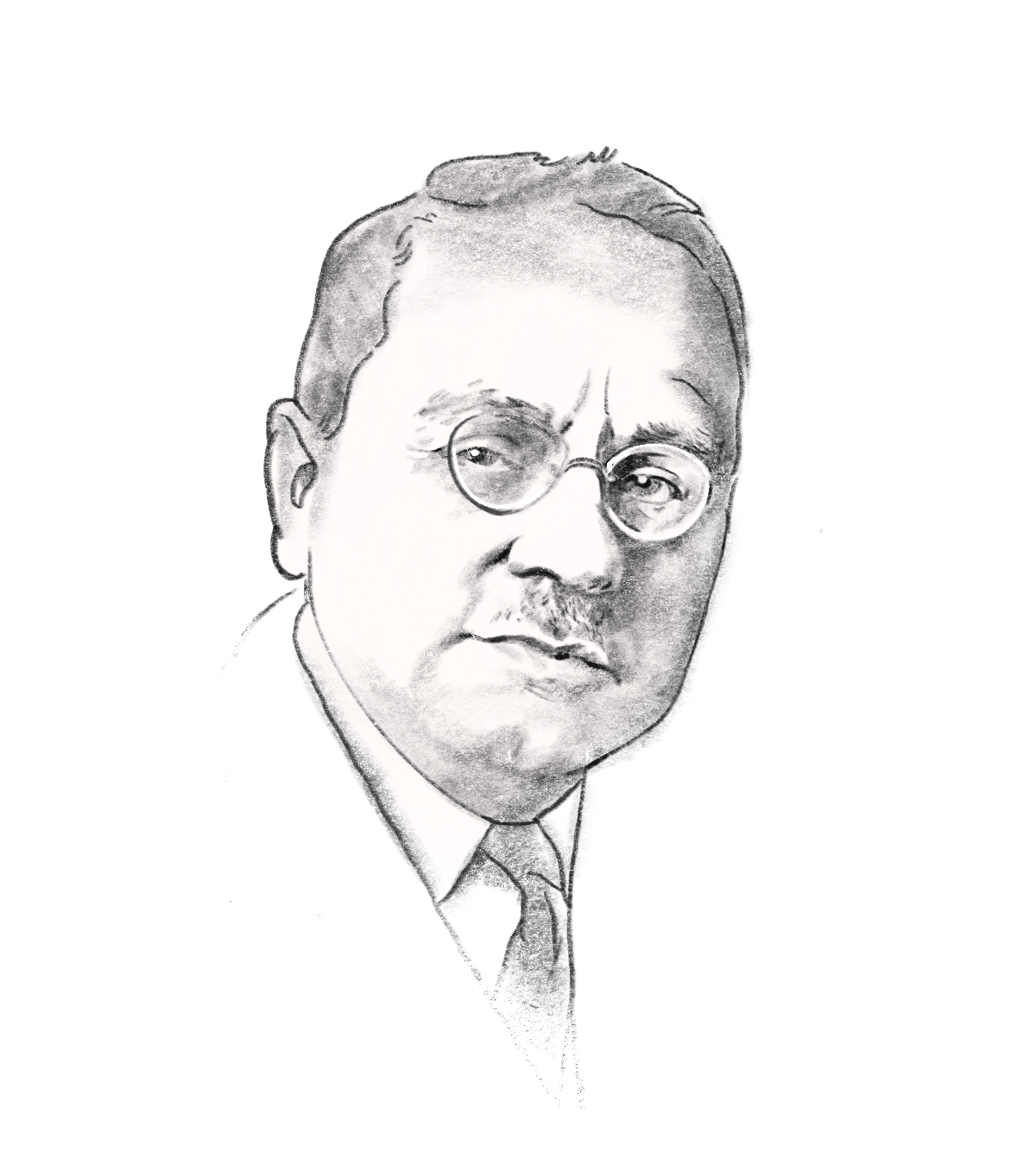Who Was Alfred Adler?
Alfred Adler was an early associate of Sigmund Freud in Vienna but his revolutionary observations triggered a life of research dedicated to understanding people that he called Individual Psychology. Adler's comprehensive theory of human behavior has resulted in models of practice that have had broad impact on the fields of education, social sciences, family life, psychology and psychotherapy. He pioneered ideas and techniques that have become the basis for most contemporary work including Cognitive Behavior Therapy, Reality Therapy, Solution-Focused Therapy, Rational Emotive Behavior Therapy, Existential Therapy, Holistic Psychology and Family Therapy to name a few. Theorists as diverse as Karen Horney, Erich Fromm, Viktor Frankl, Abraham Maslow, Albert Ellis, and Aaron T. Beck credit Adler's work as an important basis for their own contributions. Adler was one of the earliest theorists to utilize a short-term, active, focused and solution-oriented approach to psychotherapy. Adler's work is fundamental to the professions and practices of school psychology, school counseling, the community mental health movement and parent education. As a dynamic and vital view of human development, Individual Psychology continues to grow and thrive in a changing world.
About Adlerian Theory
Thyra Boldes once wrote of Adler that he was real, whether he was joking or serious, whether in private discussion or lectures, his real personality always seemed to say, Life is holy.
Have reverence for life.
Everything, which happens, is important.
In his youth, Adler was a sickly child, which caused him embarrassment and pain. These early experiences with illnesses and accidents probably account for his theory of organ inferiority and were the foundation for his theories on inferiority feelings.
According to Adler, each individual has a weak area in his or her body--organ inferiority, which tends to be the area where illness occurs, such as the stomach, head, heart, back, lungs, etc. Adler said that to some degree every emotion finds expression in the body. From his understanding of organ inferiority, Adler began to see each individual as having a feeling of inferiority. Adler wrote, To be a human being means to feel oneself inferior. The child comes into the world as a helpless little creature surrounded by powerful adults. A child is motivated by feelings of inferiority to strive for greater things. Those feelings of inferiority activate a person to strive upward so that normal feelings of inferiority impel the human being to solve his or her problems successfully, whereas the inferiority complex impedes or prevents one from doing so.
They may express this selfishness in a need to dominate, to refuse to cooperate, wanting to take and not to give. From these unhealthy responses, the person develops an inferiority complex or a superiority complex. A superiority complex is a cover up for an inferiority complex. They are different sides of the same coin.
The healthy individual will strive to overcome his or her inferiority through involvement with society.
One is concerned about the welfare of others as well as oneself and develops good feelings of self-worth and self-assurance. On the other hand, some are more concerned with selfishness than with social interest.
The person with the superiority complex has hidden doubts about his or her abilities.
Adler developed a theory of personality based upon:
Inferiority feelings and inferiority complex,
Striving for superiority
Style of life
Social interest
Family constellation
Fictional finalism
The creative self
Masculine protest
The interpretation of dreams
Theory of psychotherapy.
From "Durbin, Paul G.. "Introduction to Alfred Adler.(President's Corner)(Biography)." Subconsciously Speaking. Infinity Institute International, Inc. 2004. Retrieved December 22, 2008 from Encyclopedia.com:http://www.encyclopedia.com/doc/1G1-128445468.html
View a short video of Alfred Adler, June 17, 1929:
What is an Adlerian?
-
Alfred Adler, a psychiatrist in Vienna in the late 1800ʼs, was a member of Freudʼs Vienna Circle until he and several other members of the group left because of irreconcilable differences of opinion. After Adler broke from Freudʼs group, he labeled his theory, Individual Psychology. While in English, individual means one or single, in Adlerʼs native German, the word conveys a sense of an indivisible and undivided person. Adler was one of the first persons to provide family counseling, group counseling, and public education to teach psychological concepts to the general public as a way of improving the human condition. He was very interested in the human condition and emphasized the importance of nurturing feelings of belonging in everyone. Equality, civil rights, mutual respect and the advancement of democracy are values shared by Adlerians everywhere. Social interest, a combination of a feeling of belonging and contribution to the welfare of humanity, became one of his essential ingredients for mental health. His ideas are just now being validated by scientific research and are often referred to as “positive psychology.”
-
Adlerʼs theory is a holistic psychology that focuses on the goals and purposes of human behavior. Holism suggests that a person is working toward the same goal on all levels of his or her experience. It also views the behavior of a person as being socially embedded. Nothing happens in isolation. As a holistic psychology, Adlerians focus on the unity of behavior. All behavior is seen as goal directed and moves from a “felt minus” to a “perceived plus.” Goals come in all dimensions: short term, long term, and at various points in between. Think of why you went to school, why you visited this webpage, why you did almost anything and you will find a goal involved. Adlerians think of goals as being an important part of motivation and the cause of behavior. Certainly our past has a role in exposing us to possibilities and learning opportunities but our choice to move in a particular direction reflects our goals and our ability to direct our own lives.
-
“Feelings of inferiority” is another basic Adlerian idea. We all have feelings of inferiority that become a motivating factor for us to develop skills, talents, and ways of overcoming our sense of inadequacy. Feelings of inferiority can give rise to genius. Unfortunately, they can also give rise to neuroses and problems in daily living when they are overwhelming or when we attempt to hide them rather than face them courageously. Adler believed that courage was the answer to many of the problems of living. Adlerians promote encouragement in the family, the school, the workplace, and in our communities.
-
So what is an Adlerian? An Adlerian is a person who applies the ideas and principles of Adler in his or her work. That work might be as a doctor, a nurse, a counselor, a teacher, a principal, a business consultant, a politician, a blue-collar worker or any other occupation. Adler applied his ideas in his practice as a psychiatrist. But he also went outside his office to the schools of Vienna and to the public. He started over 20 clinics in the schools of Vienna for teachers, parents, and children to learn how to solve their problems together. He spoke frequently to the public, explaining psychological concepts that could help them in their daily lives. He wrote over 300 books and articles in an attempt to share his insights with others so that they may all live and work more cooperatively. Thatʼs what Adlerians do. They work in schools, clinics, businesses and communities. They counsel and encourage people who are most in need of encouragement. They create learning environments where children thrive because they feel a sense of belonging, and know that they are respected and challenged at the same time. They write books and training manuals that help people learn how to live together, learn together, and work together in cooperation and mutual respect.
-
If you read through this short description of Adlerians and like what you read, maybe you would like to learn more about Adlerian Psychology or join us in the North American Society of Adlerian Psychology. If so, there is a membership form on our webpage (http://www.AlfredAdler.org). We look forward to hearing from you.
One of the best resources on the web for learning more about Adlerian Psychology and Alfred Adler, is Henry Stein's webpage. It contains many articles on Adler and gives not only more biographical information but theoretical foundation as well. Go to: www.Adlerian.us.





